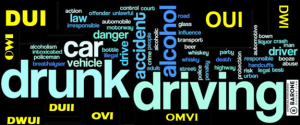Search
What Happens to My Driver’s License if I Am Convicted of DUI in Michigan?
If you are convicted of DUI in Michigan, then your driver’s license will either be restricted, suspended, or revoked. The exact driver license sanction will depend on the nature of your DUI conviction and your prior record. Driver license sanctions for DUI range anywhere from a 90-day restricted license to a 5-year hard revocation. These sanctions are not imposed until after you are convicted. A conviction occurs when you either plead guilty to an intoxicated or impaired driving or are found guilty by a judge or jury.
The specific driver license sanction depends on the nature of your conviction, the number of prior offenses you have, and when those prior offenses occurred. The following is a brief explanation of these driver license sanctions:
First Offense Operating While Visibly Impaired (OWVI)
 Michigan Criminal Defense Lawyer Blog
Michigan Criminal Defense Lawyer Blog


















 For most drivers the
For most drivers the